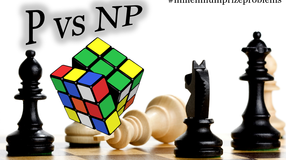Why "Mathematical Induction Is Wrong" Is Wrong
- Apr 2, 2017
- 2 min read

As you should know by now, Mathematical Induction isn't really wrong, and that the article yesterday was really just a joke.
This is a short post to rebut any of the arguments that were made yesterday, lest they were too convincing.
Remembering that mathematical induction is used to prove theorems involving ordered sets, like integers. Even though the technique requires some flow and continuation of the elements, the key of mathematical induction does not lie with the next element of the ordered set. The focus of mathematical induction is the difference between each element, how this:

leads to this:

Hence it's the difference between jumping off a platform 1cm off the ground and jumping off a platform 2cm off the ground. Granted, both are likely to leave anybody unharmed, but on a cellular level, if it can be measured, one scenario is going to do more harm than the other. In terms of energy, this can be proven using the formula for gravitational potential energy.

It's easy to see that jumping off twice the height will dissipate twice the energy. This should be the inductive step, instead of the superficial outcome that the subject "isn't injured".
The Sorites Paradox is really a problem of how vague the word "heap" is. This can be extended to many variations, like giving a man a dollar a day, how many days thereafter will he then be considered rich? The vagueness of the adjective lets us toy with such ideas. If "heapyness" were a measurable quantity, we could easily set a boundary as to where the heap stops existing.
A heap with 999 grains of sand is hence "less heapy" than a heap with 1000 grains of sand.
Mathematical Induction is a very powerful tool for proving many theorems, and the ordered sets it deals with doesn't even have to be finite. One should continue to respect (and worship) it.














Comments